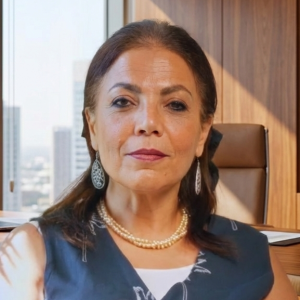The United Arab Emirates (UAE), with its extensive coastline along the Arabian Gulf and the Gulf of Oman, has a rich history of fishing as a cornerstone of its culture and economy. For centuries, the sea has been a vital source of sustenance, employment, and trade for the region. Today, as the country continues to modernize, the fisheries sector remains a crucial industry, balancing tradition with innovation to address the challenges of sustainability and environmental conservation.
Historical Significance of Fisheries in the UAE
Fishing has deep roots in the UAE’s heritage, dating back to the pre-oil era when the sea was a primary source of livelihood. Emirati communities relied on fishing, pearl diving, and trade to sustain their economies. Traditional fishing practices, such as using dhow boats and casting nets by hand, were passed down through generations, reflecting the intimate relationship between the people and the sea.
Even today, the fishing villages scattered across the coastline serve as living reminders of this heritage. These villages not only preserve traditional practices but also contribute to the nation’s identity by celebrating festivals and cultural events centered around the fishing community.


Modern Fisheries: A Thriving Industry
With advancements in technology and infrastructure, the UAE’s fisheries sector has undergone a significant transformation. Ports equipped with modern facilities, advanced fishing vessels, and robust supply chains now define the industry. Major fishing hubs such as Fujairah, Ras Al Khaimah, and Umm Al Quwain play a pivotal role in supplying fresh seafood to local and international markets.
The UAE boasts a wide variety of marine species, including hammour (grouper), kingfish, tuna, shrimp, and squid. These species are highly sought after in domestic markets and also contribute to the country’s exports. The government’s investments in cold storage and processing facilities have further strengthened the fisheries sector, ensuring quality and freshness for consumers.

Aquaculture: The Future of Sustainable Fisheries
As global demand for seafood increases, the UAE has recognized the importance of sustainable practices to protect its marine ecosystems. Aquaculture—the farming of fish and other aquatic species—has emerged as a key solution to meeting this demand without depleting natural fish stocks.
The government has invested in state-of-the-art aquaculture facilities, such as fish farms and hatcheries, to produce high-quality seafood in controlled environments. Species like tilapia, barramundi, and shrimp are now cultivated in these farms, reducing the pressure on wild fisheries.
One notable initiative is the Sheikh Khalifa Bin Zayed Al Nahyan Marine Research Center, which focuses on sustainable aquaculture and marine biodiversity. Through research and innovation, the center aims to develop techniques that enhance productivity while minimizing environmental impact.
Challenges Facing the Fisheries Sector
Despite its advancements, the fisheries sector in the UAE faces several challenges:
- Overfishing: The increasing demand for seafood has led to overexploitation of certain species, such as hammour and kingfish. This has raised concerns about the long-term sustainability of marine resources.
- Climate Change: Rising sea temperatures, ocean acidification, and changing currents impact fish habitats and breeding patterns, posing a threat to the marine ecosystem.
- Marine Pollution: Plastic waste, oil spills, and other pollutants harm aquatic life and disrupt the delicate balance of marine ecosystems.
- Declining Fish Stocks: Studies have shown a decline in fish populations due to habitat destruction, unsustainable fishing practices, and illegal fishing activities.
Government Initiatives for Sustainability
Recognizing these challenges, the UAE government has implemented several measures to ensure the sustainability of its fisheries:
- Fishing Regulations: The Ministry of Climate Change and Environment (MOCCAE) enforces strict regulations, such as seasonal bans on certain species, restrictions on fishing gear, and licensing requirements. These measures help protect breeding grounds and allow fish populations to recover.
- Marine Protected Areas (MPAs): The UAE has established several MPAs to safeguard critical habitats, such as coral reefs, mangroves, and seagrass beds. These areas serve as safe havens for marine life, promoting biodiversity and resilience.
- Public Awareness Campaigns: Initiatives like “Choose Wisely,” a sustainable seafood campaign by MOCCAE, encourage consumers to make informed choices by opting for locally sourced and responsibly harvested seafood.
- Research and Innovation: Collaboration with international organizations and research institutions has led to the development of innovative solutions, such as advanced aquaculture techniques and artificial reefs to enhance marine biodiversity.
The Role of Technology in Fisheries
Technology has played a transformative role in modernizing the fisheries sector in the UAE. Advanced tracking systems, satellite imaging, and GPS-enabled devices allow fishermen to locate fish stocks more efficiently, reducing bycatch and waste.
Additionally, blockchain technology is being explored to improve traceability in the seafood supply chain. This ensures that consumers receive authentic, sustainably sourced products while preventing illegal fishing practices.
The Contribution of Fisheries to Food Security
As the UAE continues to prioritize food security, the fisheries sector plays a crucial role in ensuring a stable supply of protein-rich food. Local seafood production reduces the reliance on imports, contributing to the nation’s goal of self-sufficiency.
Furthermore, the integration of fisheries into the UAE’s National Food Security Strategy highlights the sector’s importance in achieving long-term sustainability and resilience against global challenges.
Community Engagement and Traditional Practices
While modern advancements have revolutionized the fisheries sector, traditional practices still hold significance. Many Emirati fishermen continue to use age-old techniques, such as handlining and trap fishing, which are more sustainable and less invasive than industrial methods.
Community-driven initiatives, such as local fish markets and cultural festivals, celebrate the contributions of the fishing community while promoting sustainable practices. These events also provide a platform for knowledge exchange between generations, ensuring that traditional wisdom is preserved.
Future Prospects and Innovations
The future of fisheries in the UAE lies in striking a balance between growth and sustainability. Key areas of focus include:
- Expanding Aquaculture: Scaling up aquaculture production while adopting eco-friendly practices to meet growing demand.
- Promoting Eco-Tourism: Leveraging the UAE’s marine resources to attract tourists through activities like fishing trips, diving, and seafood festivals.
- Enhancing Research: Investing in cutting-edge research to address challenges like climate change and habitat restoration.
- Strengthening International Collaboration: Partnering with global organizations to adopt best practices and share knowledge.
Conclusion
The fisheries sector in the UAE is a testament to the nation’s ability to embrace progress while honoring its heritage. By combining traditional practices with modern technology and sustainable initiatives, the UAE is paving the way for a thriving and resilient fisheries industry.
As the country continues its journey toward sustainability, the fisheries sector will remain a vital part of its cultural, economic, and environmental fabric, ensuring that future generations can enjoy the bounty of the sea while preserving its precious resources.
Do follow Uae stories for more Updates
Dubai Metro: A Modern Marvel Transforming Urban Transportation












